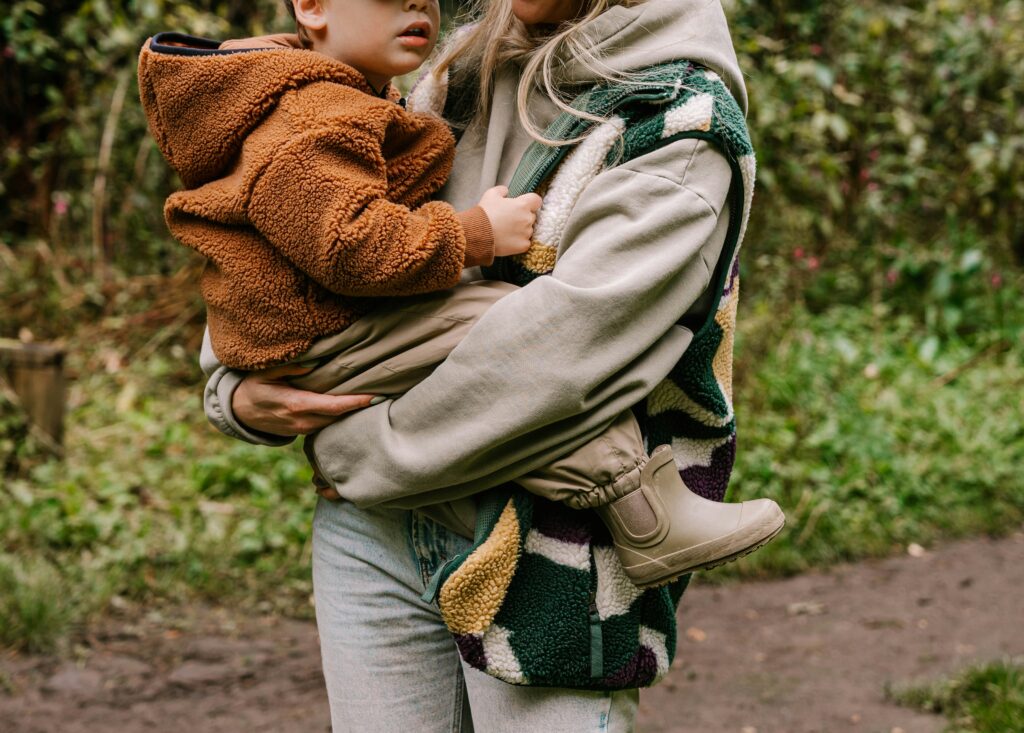
Protecting the Privacy of Kids in Care
7 Pasos para Convertirse en Padre de Crianza
With the arrival of 2025 and New Year’s resolutions in full effect, lots of people are making their way to the gym—some stepping in for the very first time.
I wonder if, like me, you’ve ever had a moment where you walked into a gym to exercise and immediately felt like everyone was looking at you?
Logically, you understand that you aren’t the focal point in the room. Still, your mind and body continue to anxiously process thoughts like:
“I wonder if I look like I belong here.”
“I hope I did that correctly.”
“I hope I wasn’t in anyone’s way.”
I won’t pretend to understand what it’s like to walk into a room as a child in care, but I assume similar questions would be asked with much more frequency and depth:
“I wonder how many people here know my story?”
“Do they know that this is my 10th home in 4 years and my 4th school in 2 years?”
“I hope I say the right things as I meet new people.”
“I wonder if these people know things about my biological parents?”
It’s our responsibility as foster parents to protect our kids.
To protect their bodies, yes. But also to protect their stories.
I know that if I were a first-timer at the gym with a friend or coach who had offered to guide me, the last thing I’d want is for them to announce to everyone that I’m a newbie, that I’m nervous to be there, or that I’ve struggled to stick with fitness goals in the past. Instead, I’d hope for them to show understanding of my journey, support for my current circumstances, and respect for the personal challenges I’m working to overcome.
Similarly, by practicing intentional privacy in your foster care journey, you create an environment where children feel truly respected, secure, and safe. Navigating questions about the children in your care can feel tricky at first, but I’m here to share some strategies that will help you both safeguard their privacy and uplift them at every opportunity.
My wife and I have been foster parents for the last four years. Throughout that time, we have interacted and cared for a variety of kids in foster care ranging in ages from 2 years old to 20. Currently, we support 4 teens (and their partners), all of whom have had deep interactions with the foster care system.
While their stories are very different, and their age difference varies significantly, the practice of maintaining their privacy is similar. Here are four common questions that we get from curious people and how we typically respond:
1) "Why are they in foster care?"
The direct answer to this question always has the potential to reflect poorly on the biological family, which isn’t helpful for anyone within the foster care community. Instead of giving a direct answer, you can acknowledge what you don’t know and be vague about the rest.
We frequently answer this question by saying:
“We don’t know all of the details, but there were concerns about the health and safety of the child. So for now, we know they get to stay with us, and we’re trying to provide the best environment we can.”
For older kids we support who currently don’t live with us, the answer is mostly the same. Even if I have known them and their stories for years, I mostly say the same:
“We don’t know all of the details, but we’re here to support them through all of it and want them to be as successful in life as they want to be. We want them to have both independence for themselves and belonging with us.”
2) "How long have they been in foster care?"
People tend to make assumptions about why kids stay in care for more extended periods. Sharing specific details about a child’s history can propel further bias in a person. For example, many assume a child has been in care for longer because they have behaviors that might be hard for families to manage.
A good rule of thumb would be to simply default to how long they’ve been in your home and then take an opportunity to uplift the child by emphasizing how much they’ve excelled in a specific area.
Here’s what we say:
“You know, we’re not always aware of the complete history of a child… But they’ve been with us for *insert amount of time* and have been doing very well in school.”
With this short and simple answer, you’ve shifted the focus away from personal details about their past and toward a positive perspective, highlighting what you’re proud of and fostering encouragement.
3) "Are you planning to adopt them?"
These questions are great opportunities to gently communicate the heart of foster care and the goal of reunification when possible. The goal here is not to deflect, but to clarify and draw attention to what matters most.
Here’s our typical response:
“Since it’s not entirely our choice, that’s not something we’re able to share. The goal of foster care is reunification, but in the meantime, our home is open as long as the child needs it to be.”
If you find that you sometimes struggle to help friends and family understand the complexities of your role in the foster care community, you may find it helpful to send them an informative article that can help them break down their preconceptions. This one is a great place to start:
READ: 5 Myths About Supporting the Foster Care Community
4) "What are the parents like? Do you interact with them?"
We’ve found that with this question, most people are really asking about details regarding the removal of a child or if the parents are safe people to be around. As foster parents, we have to remind ourselves that right next to a vulnerable child are vulnerable parents. As much as it’s our job to protect the child’s privacy, it’s also our job to protect the privacy of the child’s family.
At The Riverside Project, we have a phrase that we use often on our team: Believe the best.
So when we talk about vulnerable families, we always make an effort to believe the best. Try to share something positive about the parents and lean into your lack of proximity and the fact that you haven’t had ample time to get to know them. This preserves a child and their family’s dignity.
We answer with something like this:
“Honestly, we don’t spend a ton of time with the parent(s) to be able to answer that question. However, it’s evident that they love their kids. I’m sure they are great and doing the best they can right now to reunify their family.”
Regardless of what question(s) you may get as a foster parent, these are five things I’ve come to understand about the importance of maintaining privacy:
#1: It’s helpful to have pre-determined, quick answers to common questions.
#2: Caring for the vulnerable does not mean sharing about the vulnerable.
#3: Before sharing, ask: “Does what I’m about to say make me the hero or my kid the hero?” If it’s you, perhaps don’t share.
#4: Refrain from sharing photos publicly on social media.
#5: Everything said should be true, but not everything true should be said.
It is our job to protect the privacy of children in care so that they and their families feel a sense of belonging, safety, and dignity.
This work matters deeply. Let’s navigate it with intention.
Are you a foster parent or an advocate for children in foster care who navigates conversations like these frequently? If so, reach out to us via email (hello@riversideproject.org)—we’d love to start a conversation!
This article was updated from a post I originally shared on The Forgotten Initiative blog a few years ago. You can read the original and learn more about TFI here!


